approach
Africa
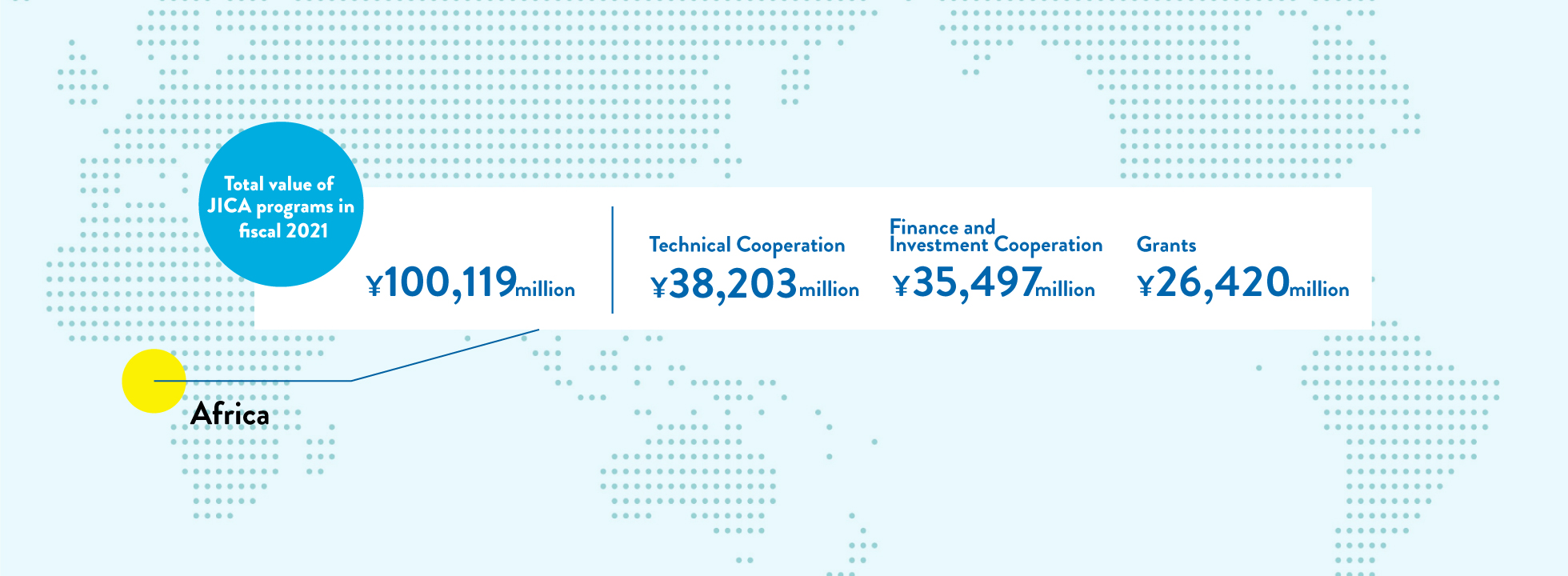
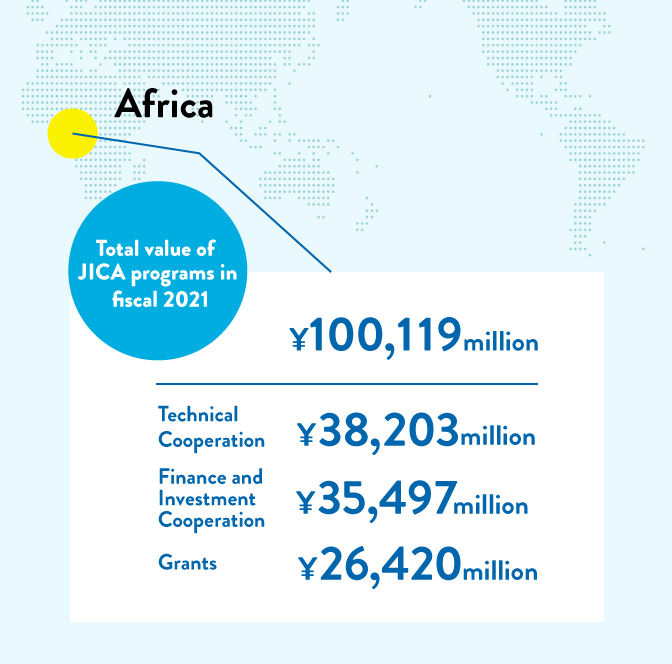
Toward Building Resilient and Inclusive Societies and Economies after the Pandemic
COVID-19 stalled socioeconomic development, slowing recovery from the crisis
Accounting for a quarter of UN membership, African countries play an important role in international politics. As they are expected to represent a quarter of the global population by 2050,*1 Africa is attracting attention as a promising market that is experiencing the rise of leapfrog phenomena associated with advancing digitalization.
Nevertheless, the COVID-19 pandemic is taking a heavy toll on socioeconomic development in Africa, turning its economy into negative growth. The poverty rate is also rising. In addition, economic recovery is lagging due in part to the delay of vaccination rollouts. Ramifications of the Ukraine crisis, including food scarcity and soaring prices, are another cause of concern. It is therefore important to protect the vulnerable from these threats and thus to support the recovery of Africa.
Toward building new societies and economies in the post COVID-19 era
For the Eighth Tokyo International Conference on African Development (TICAD 8) in August 2022, JICA set out the directions of its cooperation in building resilient societies and economies in Africa under the slogan “Toward a resilient, inclusive, and prosperous Africa.” It also made efforts to mitigate the negative social impacts of the pandemic in various sectors by capitalizing on innovations and private-sector initiatives, including the health sector under JICA’s Initiative for Global Health and Medicine.
For example, JICA provided Kenya, Ethiopia, Nigeria, and Rwanda with bilateral cooperation aimed at building a start-up ecosystem.*2 It also organized a related pitch event*3 in Uganda. In addition, JICA collaborated with the African Union Development Agency (AUDA-NEPAD) to offer business management support for African companies in the health sector. In one case, this support allowed a Kenyan firm that manufactures medical supplies such as syringes to secure funds totaling some $7 million, largely from private investors, thus successfully expanding its business.
In December 2021, the Parliament of Uganda adopted a resolution commending years of JICA’s cooperation to the country. The resolution expressed appreciation for JICA’s approaches that stress human relationships and respect African ownership.
*1 United Nations, “World Population Prospects 2019.”*2 A platform whereby young entrepreneurs link up with various stakeholders such as investors, educational institutions, and line ministries to launch new businesses.
*3 A type of event in which venture and startup businesses come together and brief investors on their products and services.
Total value of JICA programs by country
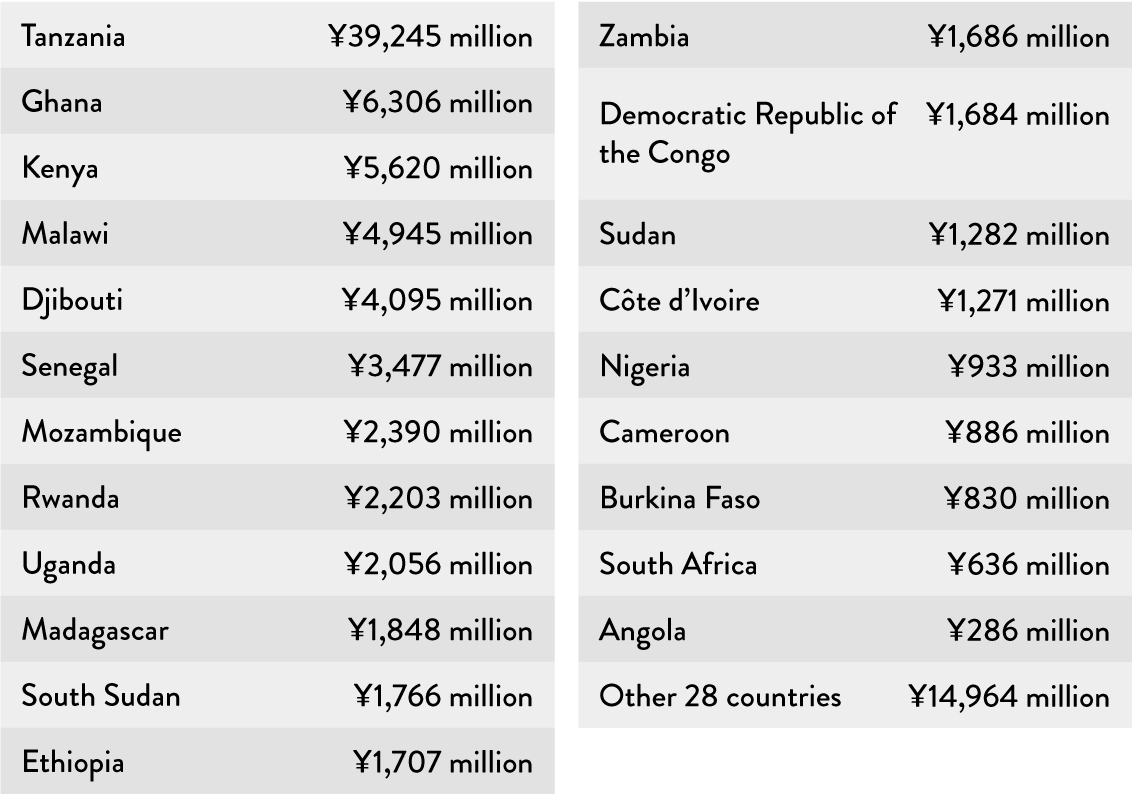 Note) The table lists only countries where JICA’s overseas offices are located. Totals may not add up due to rounding.
Note) The table lists only countries where JICA’s overseas offices are located. Totals may not add up due to rounding.
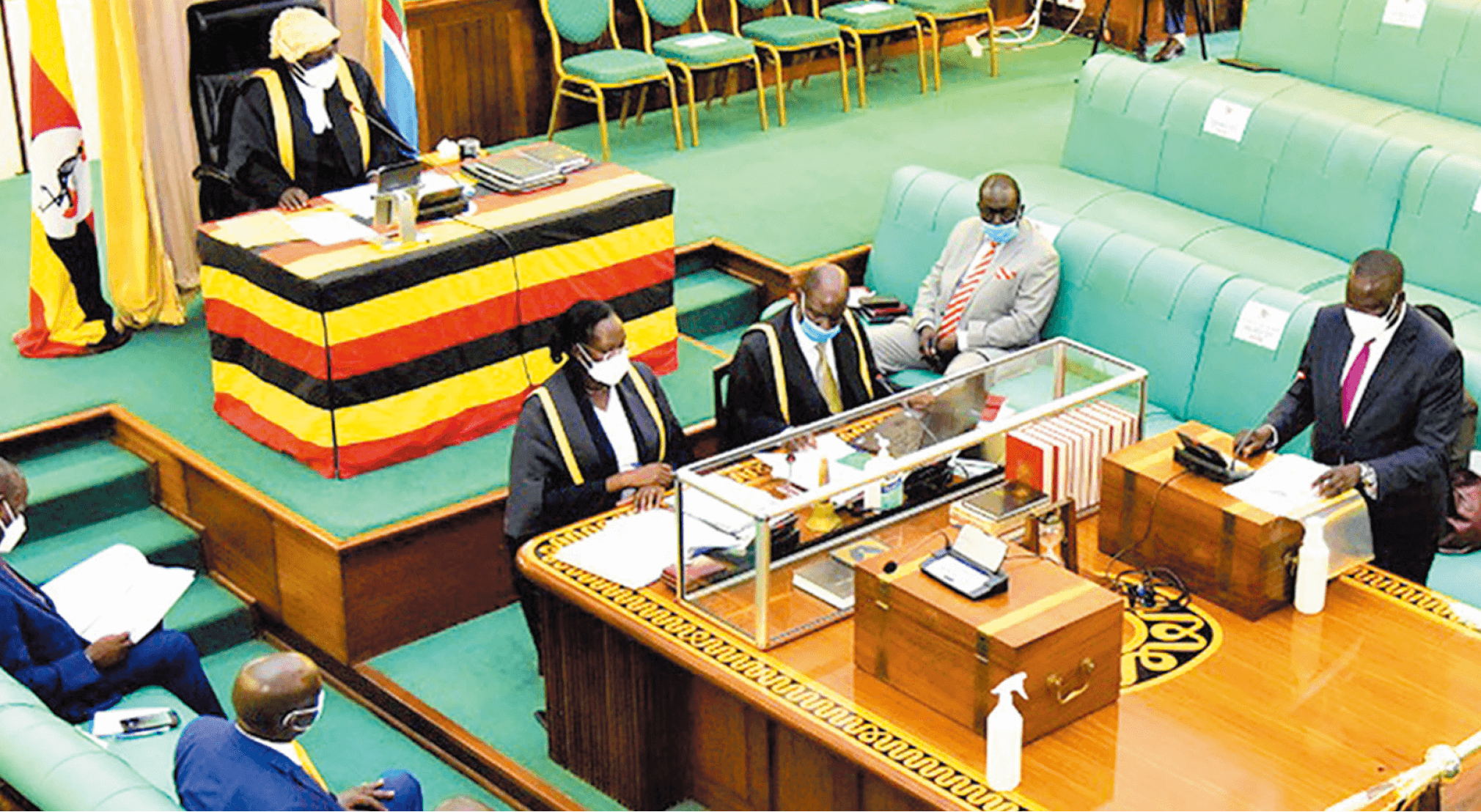 Uganda: The Parliament of Uganda adopting a resolution commending JICA’s cooperation. The resolution expressed appreciation for JICA’s activities that focused on investment in people and the self-reliant development of Uganda.
Uganda: The Parliament of Uganda adopting a resolution commending JICA’s cooperation. The resolution expressed appreciation for JICA’s activities that focused on investment in people and the self-reliant development of Uganda.An example cited was reconstruction support for northern Uganda, affected by a civil war that lasted for over 20 years from the mid-1980s. (Photo by courtesy of the Parliament of Uganda)
More Information : JICA’s website: TICAD Special Website![]()
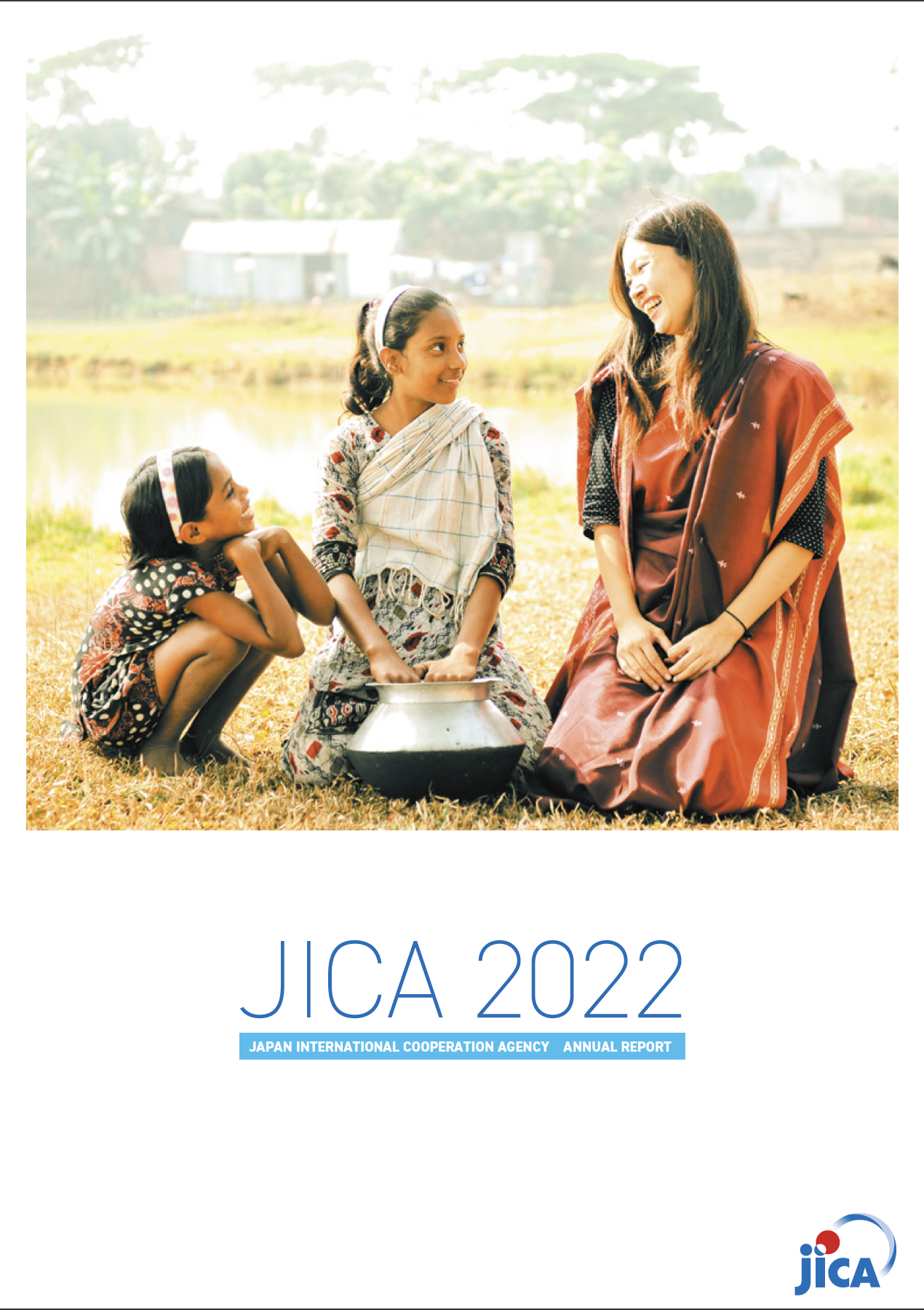
JICA Annual Report 2022